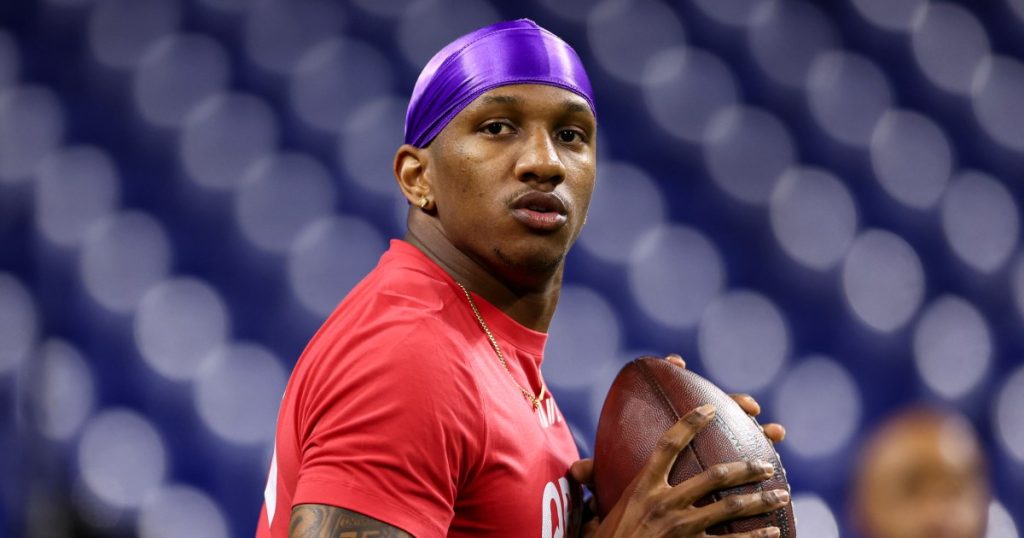In a surprising move during the NFL draft, the Atlanta Falcons selected quarterback Michael Penix Jr. with the No. 8 pick, despite having signed veteran Kirk Cousins to a four-year, $180 million contract. This decision left social media in shock and caught Cousins and his agent off guard. Cousins and his team had no idea that the Falcons were going to pick Penix, as there were no prior conversations or notifications about the decision. Moments before the pick, Cousins’ agent posted a warning on social media that fans were about to be shocked. While Cousins has not publicly commented on the situation, head coach Raheem Morris emphasized the importance of addressing the team’s future at the quarterback position.
General Manager Terry Fontenot explained that the decision to draft Penix was about thinking ahead and building a sustained winning team for the future. Penix, a rookie from the University of Washington, was seen as a valuable addition to the team. Despite the surprising move, Fontenot expressed excitement about Cousins and his ability to help the team win football games. In May, the Falcons had signed Cousins to a lucrative deal, showing their commitment to him as the starting quarterback. The situation may be uncomfortable for Cousins, as other high-profile veteran quarterbacks have had to share the sideline with younger players destined to replace them in the past.
Some notable examples include Aaron Rodgers backing up Brett Favre in Green Bay, Steve Young and Joe Montana on the San Francisco 49ers, and Joe Flacco being replaced by Lamar Jackson after the Baltimore Ravens drafted him in the first round. These instances show that the NFL is a competitive league where younger talent is constantly being groomed to take over from established veterans. Despite the potential awkwardness of the situation, Cousins will likely face the challenge head-on and continue to perform at a high level for the Falcons. The team’s focus on building a winning culture and planning for the future is a key factor in their decision-making process.
The unexpected selection of Penix by the Falcons has raised questions about the team’s long-term strategy and its impact on current players like Cousins. While the move may have come as a surprise to many, it reflects the competitive nature of the NFL and the constant need for teams to plan for the future. In a league where change is constant and new talent is always emerging, the Falcons’ decision to draft Penix shows their commitment to building a strong team that can compete at a high level for years to come. It remains to be seen how Cousins will handle the situation and whether he can lead the team to success despite the added pressure of having a highly touted rookie quarterback on the roster.


